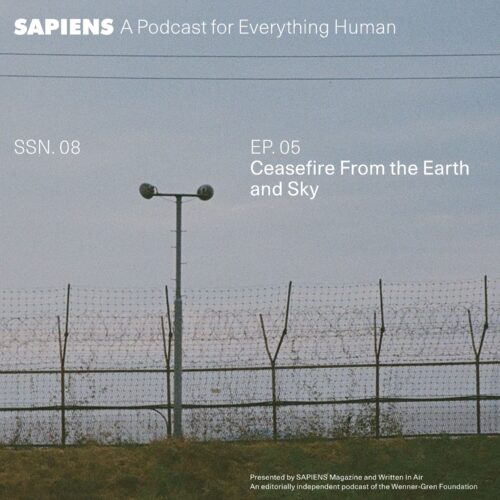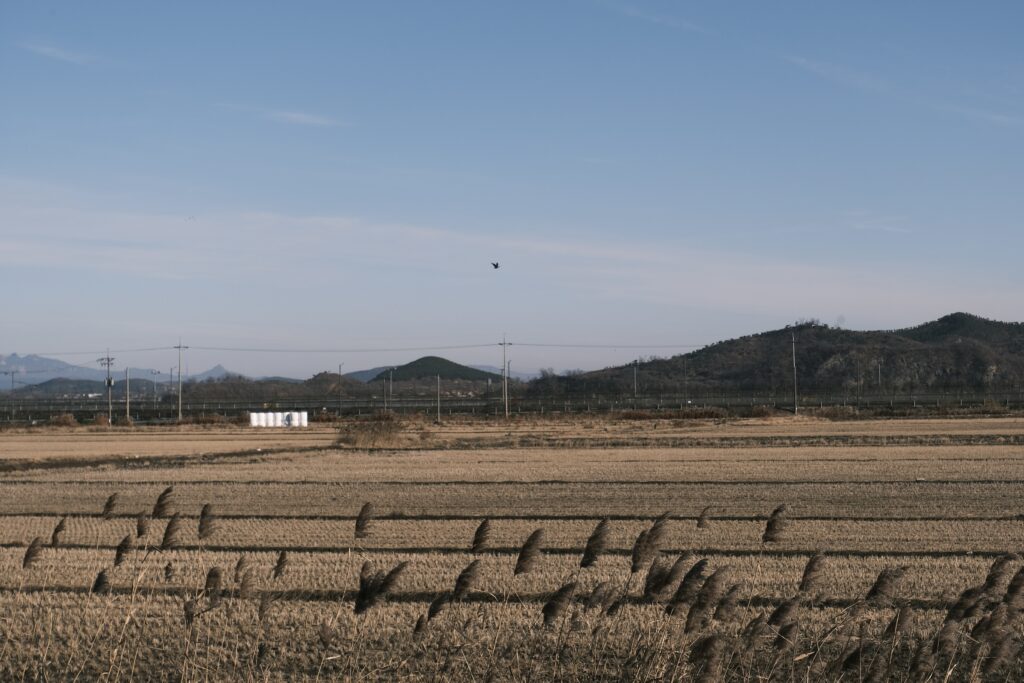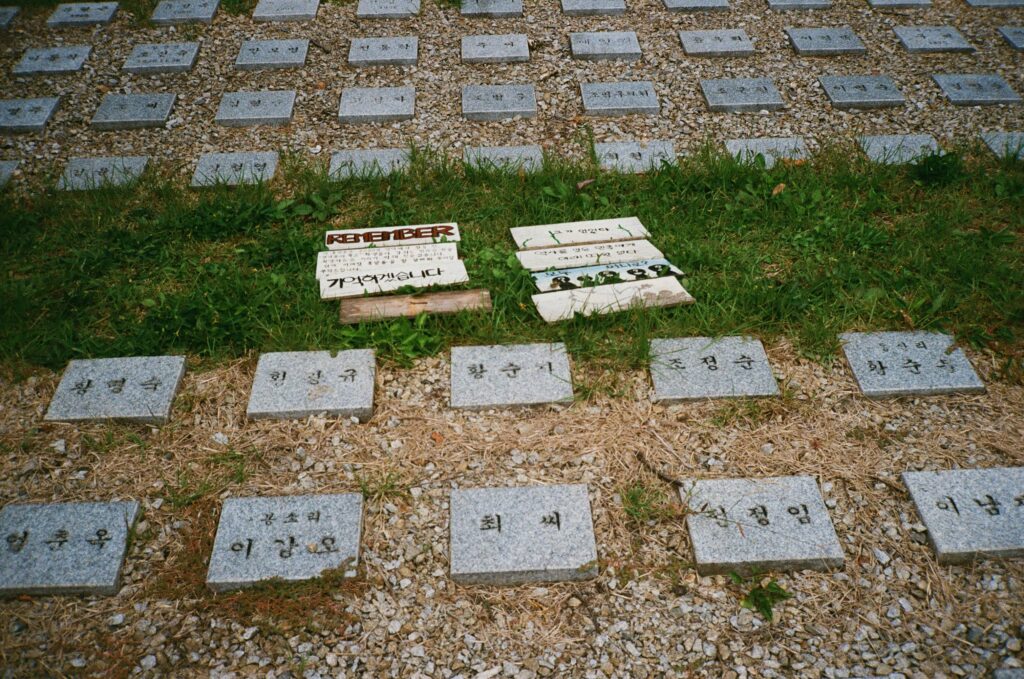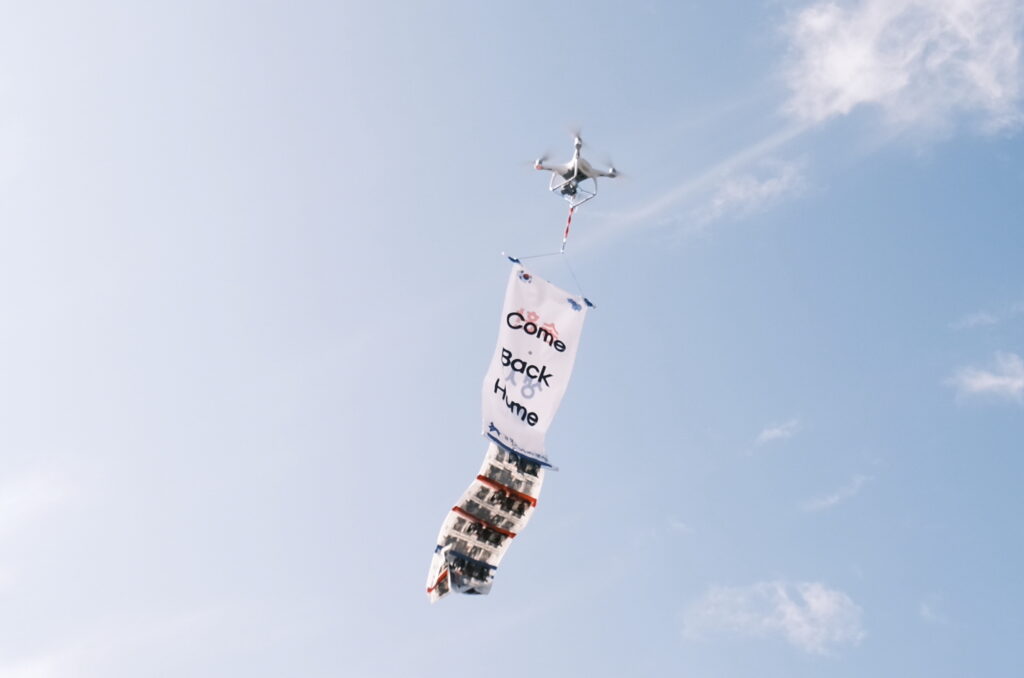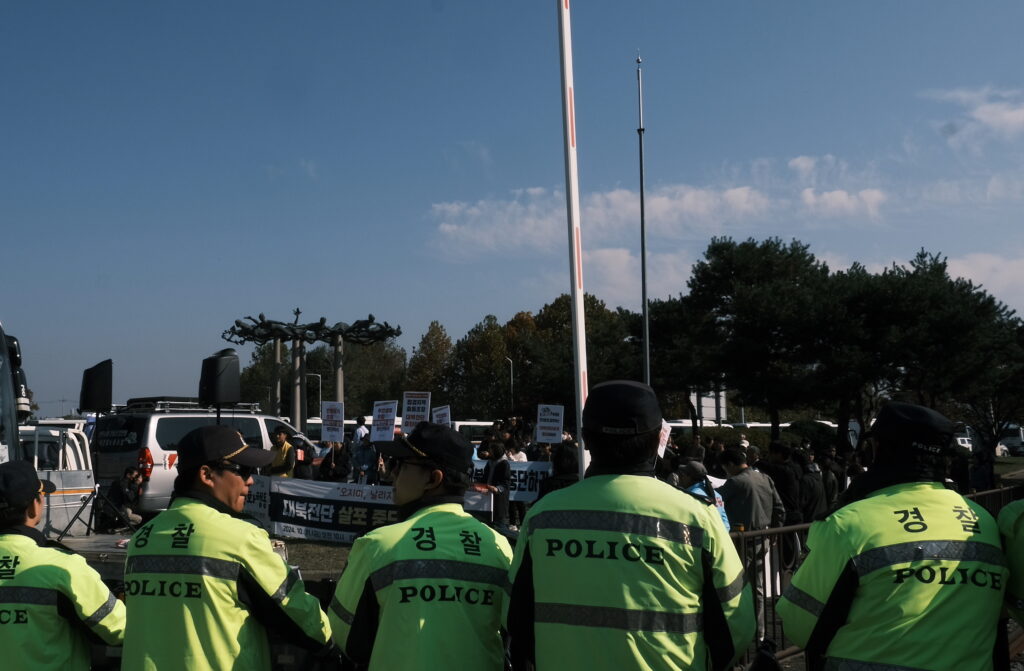In existence for more than 70 years, the Korean Demilitarized Zone (DMZ) is the site of the longest ceasefire in the world. What can this region teach us about the long, intended—and unintended—consequences of this form of a truce?
In this episode, sociocultural anthropologist T. Yejoo Kim uncovers how residents have been surviving through decades of sonic violence and propaganda, and explores recent developments in such long-lasting psychological warfare. She also details how a former excavationist remembers discovering human remains at the DMZ. Even after more than 70 years, the ceasefire allows war to reverberate through the skies and unsettle the earth below.
Yejoo Kim is a sociocultural anthropologist researching the political economy of the Korean DMZ. She is a Ph.D. candidate at the University of California, Los Angeles. Her dissertation builds upon the anthropology of borders and the economy, diaspora and transpacific studies, and critical disability frameworks. Her research has been funded by Fulbright and the Korea Foundation.
Check out these related resources:
One morning, T. Yejoo followed propaganda sounds to the edge of a farm near the DMZ, close to the military barricade.
T. Yejoo Kim
Military fencing in the civilian-controlled section of the Korean DMZ separates villagers from their nearby neighbors in North Korea.
T. Yejoo Kim
Loudspeakers in North Korea can be seen from a backyard in South Korea.
T. Yejoo Kim
A memorial site commemorates civilians massacred near the Korean DMZ by family members. Many of their bodies are still missing.
T. Yejoo Kim
Among the many kinds of propaganda balloons and drones sent by North Korean defector and abductee groups from South Korea are drones such as this one, which carries a list of family members who were abducted by North Korea.
T. Yejoo Kim
Police block local residents of the Korean DMZ who protest against groups sending propaganda balloons and drones into North Korea.
T. Yejoo Kim
SAPIENS: A Podcast for Everything Human is produced by Written In Air. The executive producers are Dennis Funk and Chip Colwell. This season’s host is Eshe Lewis, who is also the director of the SAPIENS Public Scholars Training Fellowship program. Production and mix support are provided by Rebecca Nolan. Christine Weeber is the copy editor.
SAPIENS is an editorially independent magazine of the Wenner-Gren Foundation and the University of Chicago Press. SAPIENS: A Podcast for Everything Human is part of the American Anthropological Association Podcast Library.
This episode is part of the SAPIENS Public Scholars Training Fellowship program, which provides in-depth training for anthropologists in the craft of science communication and public scholarship, funded with the support of a three-year grant from the John Templeton Foundation.
































